'Total lack of communication' over scheme, RHI inquiry hears
- Published
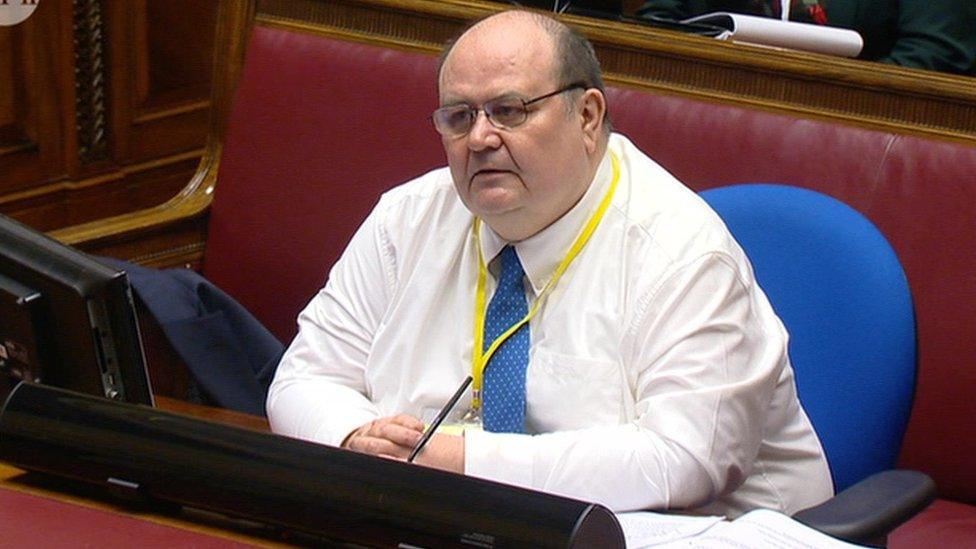
Trevor Cooper was head of finance at the enterprise department, which scrutinised and approved the RHI scheme
There was a "total lack of communication" between two divisions of a Stormont department that handled NI's flawed green energy scheme.
The remark was made by Sir Patrick Coghlin, chairman of the Renewable Heat Incentive (RHI) inquiry.
Senior finance official, Trevor Cooper, was giving evidence on Wednesday.
The RHI scheme was set up in 2012 to boost uptake of eco-friendly heat systems, but huge fuel subsidies left NI taxpayers with a £490m bill.
Its failings led to the establishment of a public inquiry in January 2017.
Mr Cooper was head of finance at the Enterprise Department, which scrutinised and approved the scheme.
He has given evidence to the inquiry on a number of occasions already.
'Such dysfunction'
On Wednesday, the inquiry heard evidence that showed there did not appear to have been enough sharing of information between officials in Stormont's Enterprise Department's energy branch, which drew up the scheme, and the finance branch.
Sir Patrick described it as "such dysfunction" and said the panel had "major difficulties" in understanding" how the department worked.
He said finance branch officials did not seem to have looked at the scheme's regulations to gain a proper understanding of how it worked.
Mr Cooper replied that he could not "disagree with that".

The RHI scheme sought to boost the use of renewable energy in NI, but a perverse incentive meant claimants could exploit the scheme for profit
He also told the inquiry he was "frustrated" at the energy division's attitude about seeking more money for the scheme, while finance was insisting it was already over budget and needed to be brought under control.
The senior civil servant chaired the committee meeting that resulted in initial approval for the scheme being granted by the finance department in 2012.
However, its approval only ran until 31 March 2015: this was how far ahead Treasury funding for the scheme had been secured.
Mr Cooper was not given the email granting the approval with its 2015 limitation.
'Organisational disaster'
The required date for re-granting financial approval in 2015 was missed, contributing to the crisis that overcame the scheme.
Mr Cooper said there were conditions attached to every approval, but no time to ensure that these were carried out.
That led Sir Patrick to remark: "That just sounds like complete organisational disaster."
"How on earth did you ever get to work efficiently?" added the inquiry chair.
Mr Cooper will give evidence again to the panel on Thursday.
Charity Commission investigation
Meanwhile, the Charity Commission has confirmed it has re-opened an investigation into an energy charity with links to the RHI scheme.
Earlier this month, the boss of Action Renewables, Michael Doran, appeared at the inquiry.
It helps businesses switch from fossil fuels to renewable energy sources, and facilitated about a quarter of all applications to the RHI initiative.
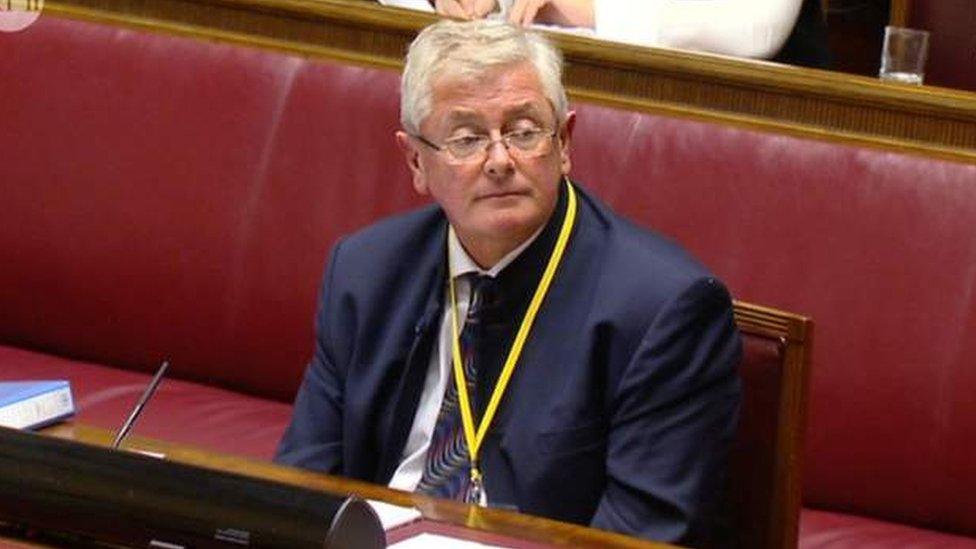
Michael Doran of Action Renewables gave evidence to the inquiry several weeks ago
Last year, his organisation told the Charity Commission it had not become aware of flaws in the scheme until 2016, but it emerged that he knew as far back as 2012 of problems.
Mr Doran told the inquiry his organisation was aware of this flaw from the outset, but did not flag it with Stormont officials, in case it led to a delay in the introduction of RHI.
Sir Patrick said the "inescapable inference" from the evidence he had seen, was that Mr Doran was "misleading" the commission.
That led the Charity Commission to say it was "carefully considering" the evidence.
In a letter to Alliance assembly member Stewart Dickson, the commission has now confirmed it has re-opened the investigation.
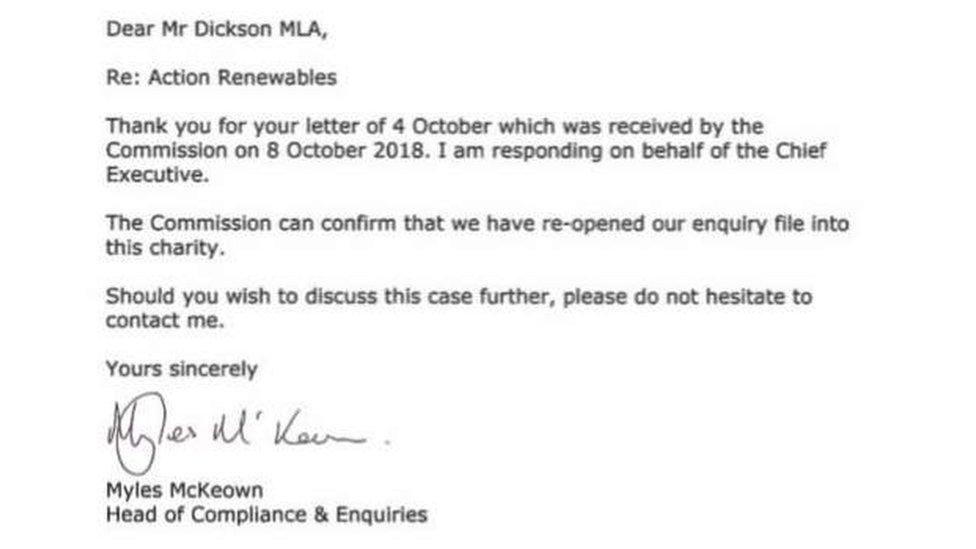
Mr Dickson had complained following Mr Doran's evidence to the inquiry.
"I hope this will be taken extremely seriously and any wrongdoing or irregularities are appropriately addressed," added Mr Dickson.
The inquiry's oral hearings are due to conclude by the end of October.
- Published10 October 2018

- Published5 September 2018
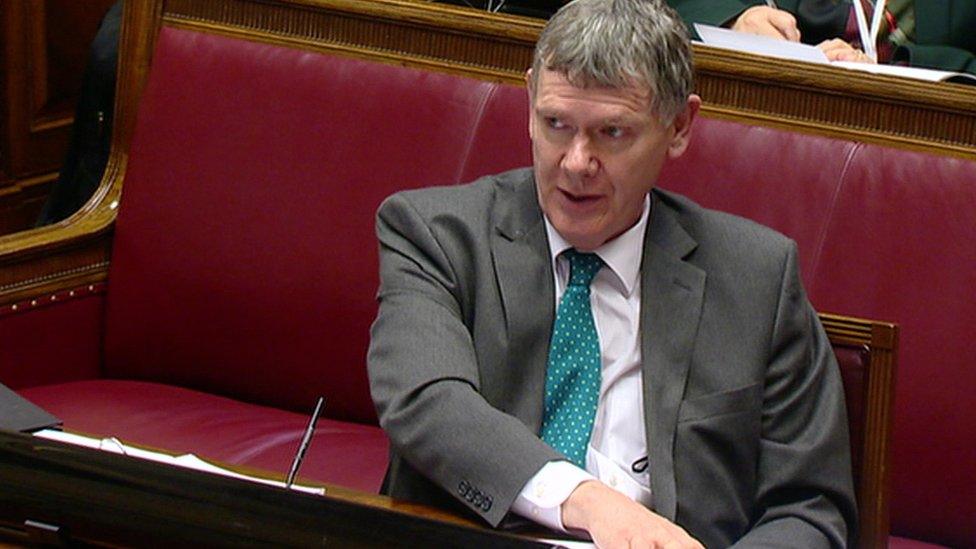
- Published4 September 2018
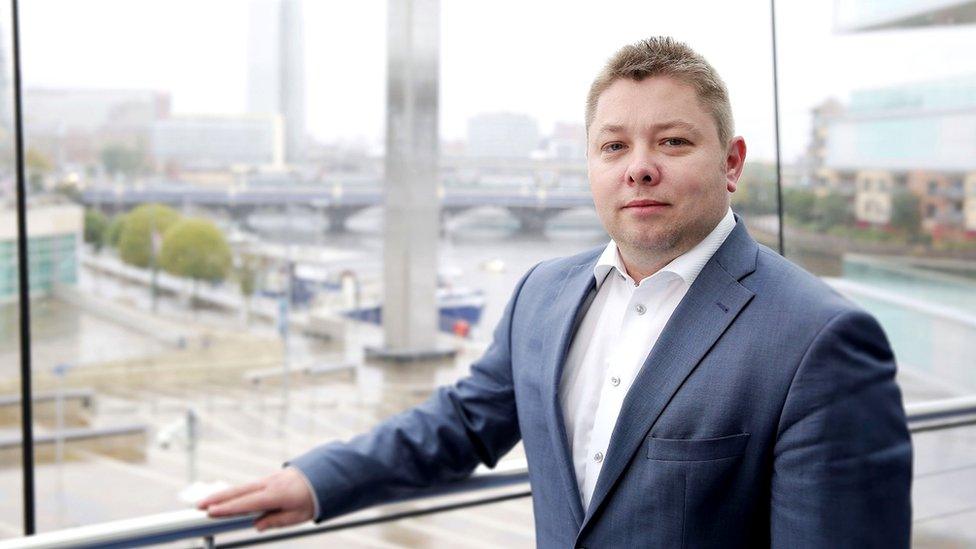
- Published23 October 2019

- Published7 November 2017
